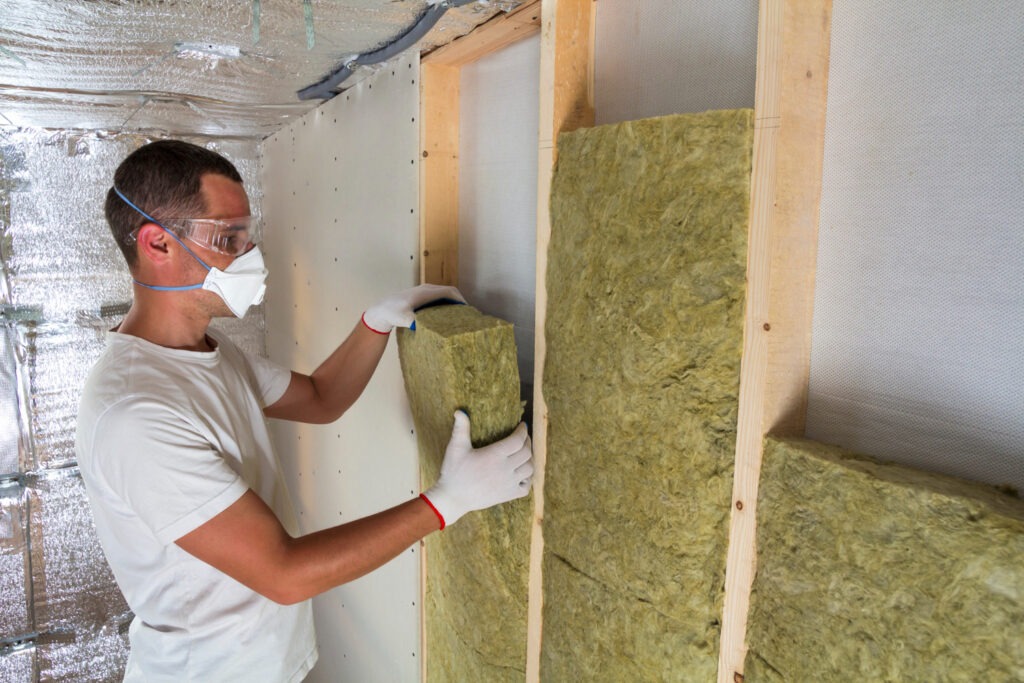Insulation is a critical component of a comfortable and energy-efficient home. However, the principles behind insulation’s effectiveness are not always well-understood by homeowners. This article will provide an in-depth explanation of the science behind insulation, how it works to maintain a comfortable living environment, and the importance of proper insulation in homes across Palm Beach County. By understanding the fundamentals of insulation, you can make informed decisions about your home’s thermal protection, ensuring maximum comfort and energy efficiency. From the various materials available to the role of R-value in gauging insulation performance, this comprehensive guide covers all aspects of insulation science. Gain valuable insights that will help you optimize your home’s insulation and create a more comfortable, energy-efficient living space for you and your family.
Heat Transfer Mechanisms: Conduction, Convection, and Radiation
To understand the science behind insulation, it’s essential to learn about the three primary methods of heat transfer: conduction, convection, and radiation. These processes work together to transfer heat within a home and are influenced significantly by insulation effectiveness.
1. Conduction: This is the transfer of heat between two solid materials in direct contact, such as a wall and the insulation. Thermal conduction occurs when heat moves through solid materials, like the studs and framing of your home. Insulation works to minimize conductive heat transfer by trapping air pockets within its structure, which reduces the rate of heat flow.
2. Convection: Heat transfer through fluids (liquids and gases) is called convection. Heat loss due to convection typically occurs in poorly insulated homes, where warm air rises and is replaced by cooler, denser air. Insulation can help reduce convective heat loss by providing a barrier that limits airflow within your home.
3. Radiation: This type of heat transfer occurs when electromagnetic waves carry energy from a warm object to a cooler one without any intervening medium. An example of radiative heat transfer is the sun warming your home’s roof. Reflective insulation materials can help reduce radiative heat transfer by reflecting heat energy back towards its source instead of allowing it to pass through.
Understanding R-Value: A Measure of Insulation Performance
The R-value of insulation is a crucial factor for homeowners to consider when evaluating their home’s thermal protection. The R-value measures an insulation material’s ability to resist heat flow. Higher R-values indicate better insulating properties and increased resistance to heat transfer. Insulation with a high R-value is more effective at preventing conductive heat transfer, thus contributing to a more energy-efficient home.
The recommended R-value for insulation varies depending on factors such as climate, type of construction, and the part of the home being insulated. In Palm Beach County, where temperatures can rise significantly, it’s vital to invest in insulation with an appropriate R-value for optimal energy efficiency.
Common Insulation Materials and Their Properties
There are many insulation materials available for homeowners to choose from, each with unique characteristics that influence their effectiveness and suitability for specific applications.
1. Fiberglass: One of the most commonly used insulation materials, fiberglass, is composed of woven strands of glass fibers. It’s an excellent thermal and acoustic insulator, providing a high R-value per inch and effective soundproofing. Fiberglass is available in batts or rolls, making it relatively easy to install.
2. Mineral Wool: This type of insulation is made from either rock or slag wool and has similar properties to fiberglass. Mineral wool is often denser than fiberglass, with a high insulating value and excellent fire resistance. Mineral wool is available in batts or loose-fill form, providing versatility in its application.
3. Cellulose: Made from recycled paper products, cellulose insulation is an eco-friendly and highly effective insulator. Its dense structure provides exceptional thermal performance, with a high R-value and excellent resistance to air infiltration. Loose-fill cellulose can be blown into wall cavities and attic spaces, providing a comprehensive barrier against heat transfer.
4. Spray Foam: Spray foam insulation is a popular choice for its ability to expand and fill irregular spaces, creating an airtight seal. Available as open-cell or closed-cell foam, spray foam insulation offers impressive R-values per inch and effective air sealing. However, it typically requires professional installation and can be more expensive than other insulation types.
5. Rigid Foam Board: Rigid foam board insulation is composed of either expanded or extruded polystyrene, providing high R-values and excellent moisture resistance. This type of insulation is commonly used for insulating exterior walls, foundations, and roofs.
Benefits of Proper Insulation in Your Home
Investing in proper insulation has numerous benefits for homeowners in Palm Beach County, including:
1. Energy Efficiency: Effective insulation reduces heat transfer, lowering your reliance on heating and cooling systems, and thus decreasing your energy bills.
2. Indoor Comfort: Insulation helps maintain consistent temperatures inside your home, keeping you and your family comfortable throughout the year.
3. Moisture Control: Proper insulation can help reduce condensation, rot, and mold by minimizing humidity and moisture intrusion.
4. Soundproofing: Insulation can act as a barrier against external noise, providing a quieter living environment.
The science behind insulation is critical for homeowners to understand to make informed decisions regarding their home’s thermal protection. Proper insulation can significantly enhance energy efficiency, indoor comfort, and moisture control while providing soundproofing benefits. By considering factors such as heat transfer mechanisms, R-value, insulation materials, and regional climate, homeowners in Palm Beach County can invest in insulation that best meets their needs and contributes to a healthier, more comfortable living environment.
Maximize Your Home’s Energy Efficiency with All Thermo
With a solid understanding of the science behind insulation, you can make informed decisions about your home’s thermal protection, ensuring maximum comfort and energy efficiency for your family. All Thermo, the top-rated attic cleaning, insulation removal, air duct work replacement, and attic insulation company in Palm Beach County, is ready to help you make those decisions and enhance the comfort and energy efficiency of your home.
Let our team of experienced professionals assess your home’s insulation needs and provide tailored solutions with the appropriate materials and R-value for your specific situation. Experience the benefits of proper insulation, including improved indoor comfort, reduced energy bills, and enhanced soundproofing.
Ensure your home reaches its full potential in comfort and energy savings by scheduling an in-home assessment with All Thermo today. Our experts specialize in delivering top-quality services, focusing on optimizing insulations and promoting energy efficiency in homes across Palm Beach County.
Trust All Thermo for all your insulation needs and experience the benefits of improved energy efficiency and a healthier living environment in your Palm Beach County home. Let us help you make an educated decision about your home’s insulation, ensuring your family’s comfort for years to come. Reach out to us to learn more about our range of insulation services, request a quote, or schedule an appointment.

